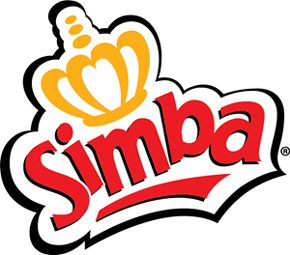Simba (South African company)
Simba is a prominent South African company known for its production and distribution of a wide range of snack foods. Founded in 1957, Simba has grown to become a household name in South Africa, synonymous with quality snack products such as potato chips, corn chips, and other extruded snacks. The brand is a subsidiary of PepsiCo, one of the largest food and beverage companies globally, which acquired it in the late 1990s. This acquisition has allowed Simba to expand its product range and distribution networks both within South Africa and into other African markets.
History[edit | edit source]
Simba's journey began in 1957 when the company was established by an entrepreneur with a vision to create a local snack food brand that could compete with international brands. The name "Simba" is derived from the Swahili word for lion, symbolizing strength, leadership, and pride, values that the company aspires to reflect in its business practices and product quality. Over the decades, Simba has introduced a variety of flavors and products, adapting to changing consumer tastes and preferences while maintaining a commitment to quality.
Products[edit | edit source]
Simba's product line includes a variety of snack foods, with its flagship product being the potato chip. These chips come in numerous flavors, catering to the diverse South African palate. In addition to potato chips, Simba manufactures corn chips, extruded snacks, and other snack foods under various brand names. The company is also known for its innovative approach to flavors, often introducing limited edition flavors and collaborating with other brands for unique product offerings.
Market Presence[edit | edit source]
With its strong brand presence, Simba has a significant share of the snack food market in South Africa. The company's products are distributed widely across the country in supermarkets, convenience stores, and through other retail channels. Simba's marketing strategies, including memorable advertising campaigns and sponsorships, have played a crucial role in building and maintaining its market presence. Furthermore, under PepsiCo's ownership, Simba has expanded its footprint into other African countries, leveraging PepsiCo's global distribution network.
Corporate Social Responsibility[edit | edit source]
Simba is committed to corporate social responsibility (CSR) initiatives, focusing on community development, environmental sustainability, and healthy living. The company engages in various CSR activities, including educational programs, environmental conservation efforts, and supporting local communities. Simba's commitment to sustainability is also evident in its efforts to reduce its environmental impact through improved packaging solutions and energy-efficient manufacturing processes.
Challenges and Opportunities[edit | edit source]
Like any company, Simba faces its set of challenges, including competition from other snack food brands, changing consumer preferences towards healthier eating options, and the logistical challenges of distribution in a vast and diverse country like South Africa. However, the company also sees these challenges as opportunities for innovation, product development, and market expansion.
Conclusion[edit | edit source]
Simba stands as a testament to South African entrepreneurship and innovation in the snack food industry. With its strong brand, diverse product range, and commitment to quality and sustainability, Simba continues to be a leader in the market, bringing joy to consumers with its tasty and high-quality snack foods.
Search WikiMD
Ad.Tired of being Overweight? Try W8MD's physician weight loss program.
Semaglutide (Ozempic / Wegovy and Tirzepatide (Mounjaro / Zepbound) available.
Advertise on WikiMD
|
WikiMD's Wellness Encyclopedia |
| Let Food Be Thy Medicine Medicine Thy Food - Hippocrates |
Translate this page: - East Asian
中文,
日本,
한국어,
South Asian
हिन्दी,
தமிழ்,
తెలుగు,
Urdu,
ಕನ್ನಡ,
Southeast Asian
Indonesian,
Vietnamese,
Thai,
မြန်မာဘာသာ,
বাংলা
European
español,
Deutsch,
français,
Greek,
português do Brasil,
polski,
română,
русский,
Nederlands,
norsk,
svenska,
suomi,
Italian
Middle Eastern & African
عربى,
Turkish,
Persian,
Hebrew,
Afrikaans,
isiZulu,
Kiswahili,
Other
Bulgarian,
Hungarian,
Czech,
Swedish,
മലയാളം,
मराठी,
ਪੰਜਾਬੀ,
ગુજરાતી,
Portuguese,
Ukrainian
Medical Disclaimer: WikiMD is not a substitute for professional medical advice. The information on WikiMD is provided as an information resource only, may be incorrect, outdated or misleading, and is not to be used or relied on for any diagnostic or treatment purposes. Please consult your health care provider before making any healthcare decisions or for guidance about a specific medical condition. WikiMD expressly disclaims responsibility, and shall have no liability, for any damages, loss, injury, or liability whatsoever suffered as a result of your reliance on the information contained in this site. By visiting this site you agree to the foregoing terms and conditions, which may from time to time be changed or supplemented by WikiMD. If you do not agree to the foregoing terms and conditions, you should not enter or use this site. See full disclaimer.
Credits:Most images are courtesy of Wikimedia commons, and templates Wikipedia, licensed under CC BY SA or similar.
Contributors: Prab R. Tumpati, MD

